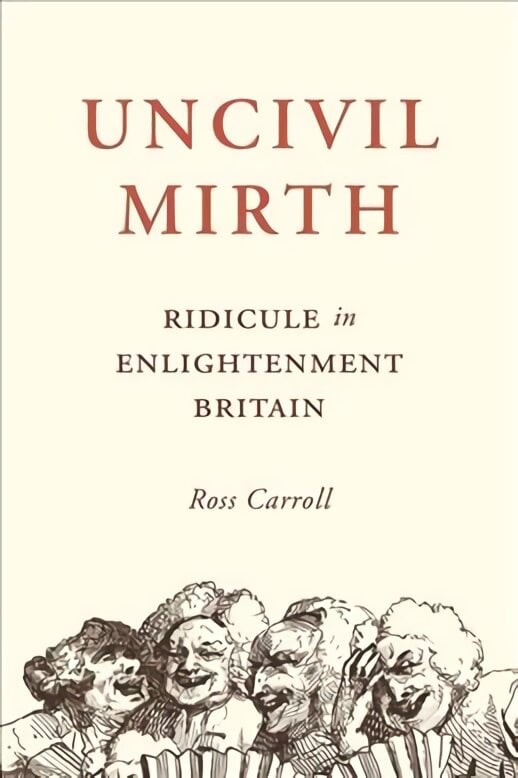-
Vaikams ir kūdikiams
- Kūdikio priežiūrai
- Maitinimo priemonės
- Vaikiški vežimėliai ir jų priedai
- Autokėdutės ir jų priedai
- Prekės mamoms
- Maniežai vaikams
- Gultukai ir sūpynės
- Kūdikių ir vaikų maistas
- Čiužiniai kūdikiams
- Vaikštynės
- Nešioklės
- Antspaudai kūdikiams
- Sauskelnės
- Kūdikių lovytės
- Patalynė kūdikiams
- Kūdikio kraitelis
- Saugos varteliai, apsaugos
- Drabužiai kūdikiams
-
Kvepalai, kosmetika
- Akių šešėliai, pieštukai, blakstienų tušai, serumai
- Makiažo pagrindai, pudros
- Lūpų dažai, blizgiai, balzamai, vazelinai
- Nagų lakai, stiprintojai
- Manikiūro, pedikiūro priemonės
- Kosmetinės, veidrodėliai
- Makiažo šepetėliai, kempinėlės
- Antakių dažai, pieštukai
- Bronzantai, skaistalai
- Priklijuojamos blakstienos, blakstienų rietikliai
- Veido kremai
- Veido prausikliai, valikliai
- Veido kaukės, paakių kaukės
- Veido aliejai, serumai
- Paakių kremai, serumai
- Veido masažuokliai, valymo įrankiai
-
Baldai ir namų interjeras
- Virtuvės ir valgomojo kėdės
- Virtuvinės spintelės
- Virtuvės ir valgomojo stalai, staliukai
- Virtuvės baldų priedai
- Virtuvės baldų komplektai
- Valgomojo komplektai
- Virtuvės stalviršiai
- Virtuvės baldų kolekcijos
- Vonios spintelės
- Vonios veidrodžiai
- Vonios komplektai
- Vonios lentynos
- Vonios aksesuarai
- Vonios kambario baldų kolekcijos
- Vaikiškos lovos
- Vaikiški čiužiniai
- Vaikiškos kėdutės ir staliukai
- Vaikiški sėdmaišiai, foteliai, pufai
- Vaikiškos lentynos
- Kūdikių lovytės
- Vaikiškos spintos
- Vaikiškos komodos
- Vaiko kambario baldų komplektai
- Vaikiškos spintelės
- Vaikiški rašomieji stalai
- Vaikiškos mokyklinės kėdės
- Žaislų dėžės
- Vaikų kambario baldų kolekcijos
-
Buitinė technika ir elektronika
- Virduliai
- Vandens filtrai
- Gruzdintuvės
- Kavos aparatai
- Trintuvai, smulkintuvai
- Svarstyklės (virtuvinės)
- Plakikliai
- Vakuumatoriai
- Vaflinės, el. blynų keptuvės
- Virtuviniai kombainai
- Kavamalės
- Išskirtiniai maisto gaminimo prietaisai
- Skrudintuvai
- Kokteilinės
- Sulčiaspaudės
- Sumuštinių keptuvės
- Garų puodai, daugiafunkciai puodai
- Pjaustyklės, peilių galąstuvai
- Gazuoto vandens aparatai ir priedai
- Griliai, marinatoriai
- Vaisių džiovyklės
- Mėsmalės
- Daigyklos, lempos augalams
- Vandens aparatai
- Duonkepės
- Dulkių siurbliai
- Plaunantys siurbliai
- Dulkių siurbliai-šluotos
- Svarstyklės (buitinės)
- Dulkių siurbliai-robotai
- Garais valantys prietaisai, grindų valytuvai
- Langų valytuvai
- Akumuliatoriai dulkių siurbliams
- Dulkių siurblių priedai
- Meteorologinės stotelės, termometrai
- Plaukų formavimo ir tiesinimo prietaisai
- Masažuokliai
- Elektriniai dantų šepetėliai
- Plaukų kirpimo mašinėlės
- Barzdaskutės
- Plaukų džiovintuvai
- Manikiūro, pedikiūro aparatai
- Elektrinių dantų šepetėlių antgaliai
- Kraujospūdžio matuokliai
- Epiliatoriai
- Irigatoriai
- Šilumos prekės
- Veido priežiūros prietaisai
- Inhaliatoriai
- Termometrai
- Masažinės vonelės
- Ventiliatoriai
- Kondicionieriai, šilumos siurbliai, rekuperatoriai
- Šildytuvai
- Oro drėkintuvai
- Vandens šildytuvai
- Grindų ir veidrodžių šildymo kilimėliai
- Vonios ventiliatoriai
- Dūmų detektoriai
- Oro reguliavimo įrangos priedai
-
Kompiuterinė technika
- Vidiniai kietieji diskai (HDD, SSD, Hybrid)
- Operatyvioji atmintis (RAM)
- Korpusų priedai
- Korpusai
- Vaizdo plokštės (GPU)
- Pagrindinės plokštės
- Kompiuterių ventiliatoriai
- Termo pastos
- Valdikliai
- Procesorių aušintuvai
- Maitinimo šaltiniai (PSU)
- Komponentų priedai
- Optiniai įrenginiai
- Procesoriai (CPU)
- Garso plokštės
- Aušinimas vandeniu - rinkiniai
- Aušinimas vandeniu - aksesuarai
- TV imtuvai, FM, video plokštės
- Vaizdo plokščių aušintuvai
-
Mobilieji telefonai, Foto ir Video
- Telefono dėklai
- Apsauginės plėvelės telefonams
- Mobilieji telefonai
- Krovikliai telefonams
- Telefono laikikliai
- Laidai telefonams
- Atsarginiai maitinimo šaltiniai (power bank)
- Priedai telefonams
- Atminties kortelės telefonams
- Telefonų dalys ir įrankiai jų remontui
- Asmenukių lazdos (selfie sticks)
- Laisvų rankų įranga
- Akumuliatoriai telefonams
- Ausinės
- Priedai fotoaparatams
- Fotografijos apšvietimo įranga
- Skaitmeniniai fotoaparatai
- Atminties kortelės fotoaparatams, kameroms
- Momentiniai fotoaparatai
- Fotoaparato stovai
- Akumuliatoriai fotoaparatams
- Objektyvai
- Dėklai, krepšiai fotoaparatams ir objektyvams
- Fotoaparatų krovikliai
- Filtrai objektyvams
- Įkraunami elementai
-
Apranga, avalynė, aksesuarai
-
Sportas, laisvalaikis, turizmas
- Turistinis inventorius
- Gertuvės
- Pripučiami čiužiniai ir baldai
- Palapinės
- Turistinės ir kelioninės kuprinės
- Turistiniai baldai
- Miegmaišiai
- Turistiniai čiužiniai ir kilimėliai
- Alpinizmo įranga
- Biotualetai
- Turistinio inventoriaus, drabužių ir avalynės priežiūros priemonės
- Autoturizmo reikmenys
- Priemonės nuo uodų
- Gimnastikos ir fitneso prekės
- Kuprinės ir krepšiai
- Vandens sportas
- Masažo reikmenys
- Įtvarai
- Futbolas
- Rakečių sportas
- Kovos menai
- Krepšinis
- Ėjimo lazdos
- Smiginis
- Tinklinis
- Baletas ir meninė gimnastika
- Žingsniamačiai, chronometrai, širdies ritmo monitoriai
- Golfas
- Diskgolfas
- Kamuolių pompos ir adatos
- Rankinis
- Beisbolas
- Grindų ir žolės riedulys
- Jojimo prekės
- Dviračiai, riedučiai, riedlentės
- Svoriai, svarmenys, grifai
- Žaidimų stalai
- Treniruokliai, treniruočių įranga
- Kamuoliai
- Aminorūgštys
- Angliavandeniai
- Baltymai
- Batonėliai
- Kiti papildai ir preparatai
- Energetikai
- Funkcinis maistas
- Glutaminas
- Kreatinas
- L-karnitinas
- Papildai ir preparatai masei auginti
- Papildai ir preparatai sąnariams
- Produktai atsistatymui
- Riebalų degintojai
- Papildai ir preparatai lieknėjimui
- Testosterono skatintojai
- Vitaminai
-
Virtuvės, buities, apyvokos prekės
- Virtuvės įrankiai
- Taurės, puodeliai, ąsočiai
- Indai, lėkštės, pietų servizai
- Puodai, greitpuodžiai
- Keptuvės
- Kepimo indai, popierius, formos
- Maisto saugojimo indai
- Peiliai ir jų priedai
- Termosai, termopuodeliai
- Kavinukai, virduliai
- Stalo įrankiai
- Prieskonių indeliai, malūnėliai
- Pjaustymo lentelės
- Prieskoniai, prieskonių rinkiniai
- Konservavimo indai ir priedai
- Gertuvės, termo puodeliai
- Vienkartiniai, teminiai indai
- Vandens filtrai
-
Santechnika, remontas, šildymas
- Oro drėkintuvai
- Meteorologinės stotelės, termometrai
- Oro sausintuvai, drėgmės surinkėjai
- Eteriniai aliejai difuzoriams
- Ventiliatoriai
- Vonios ventiliatoriai
- Oro valytuvai
- Kondicionieriai, šilumos siurbliai, rekuperatoriai
- Oro reguliavimo įrangos priedai
- Mechaniniai įrankiai
- Elektriniai įrankiai
- Įrankių dėžės, laikikliai
- Sandėliavimo lentynos
- Buitinės kopėčios, rampos
- Tvirtinimo detalės
- Sniego kastuvai, stūmikliai
- Metalo detektoriai
- Pramoninės svarstyklės
- Sniego valytuvai
- Surenkamos lentynų sistemos
- Aukšto slėgio plovimo įranga
- Stebėjimo kameros
- Durų skambučiai, akutės
- Apsaugos sistemos, valdikliai
- Dūmų, dujų detektoriai
- Davikliai, jutikliai
- Domofonai
- Signalizacijos
- Apsaugos sistemų priedai
- Elementai
- Žibintuvėliai, prožektoriai
- Elektros jungikliai, rozetės
- Prailgintuvai
- LED juostos
- Elektros lemputės
- Elementų krovikliai
- Maitinimo šaltiniai
- Laikmačiai, termostatai
- Komponentai saulės jėgainėms
- Tekstiliniai kabeliai ir elektros kaladėlės
- Įmontuojami šviestuvai, LED panelės
-
Autoprekės
-
Dovanos, dekoracijos, gėlės
- Kvepalai Jai
- Kosmetika Jai
- Aksesuarai moterims
- Mobilieji telefonai
- Belaidės ausinės
- Kvapų difuzoriai
- Dulkių siurbliai-robotai
- Kavos aparatai
- Išmanieji laikrodžiai, apyrankės
- Gruzdintuvės
- Namų kvapai
- Plaukų formavimo ir tiesinimo prietaisai
- Epiliatoriai
- Plaukų džiovintuvai
- Veido priežiūros prietaisai
- Elektriniai dantų šepetėliai
-
Gyvūnų prekės
- Sausas maistas šunims
- Guoliai, pagalvėlės
- Priežiūros priemonės gyvūnams
- Transportavimo narvai, krepšiai
- Dubenėliai, dėžės maistui
- Drabužiai šunims
- Žaislai šunims
- Skanėstai šunims
- Antkakliai, petnešos šunims
- Pavadėliai šunims
- Konservai šunims
- Kelioniniai reikmenys
- Vitaminai, papildai, antiparazitinės priemonės šunims
- Kosmetinės priemonės gyvūnams
- Dresūros priemonės šunims
- Sausas maistas katėms
- Draskyklės
- Konservai katėms
- Kraikas katėms
- Kačių tualetai
- Žaislai katėms
- Skanėstai katėms
- Vitaminai, papildai, antiparazitinės priemonės katėms
- Pavadėliai, antkakliai, petnešos katėms
- Guoliai, pagalvėlės
- Transportavimo narvai, krepšiai
- Dubenėliai, dėžės maistui
- Kosmetinės priemonės katėms
- Priežiūros priemonės katėms
-
n18.lt specializuota parduotuvė
n18.lt specializuota parduotuvė suaugusiems
Prekes suaugusiems specializuotoje internetinėje parduotuvėje n18.lt gali matyti tik lankytojai, kurie yra ne jaunesni nei 18 metų. Šioje svetainėje skleidžiama informacija gali daryti neigiamą poveikį asmenims iki 18 metų.Peržiūrėti prekes -
Apsauginės, dezinfekcinės, medicininės prekės
- Kaukės, respiratoriai
- Apsauginės sienelės, dezinfekcinės stotelės
- Dezinfekcinis skystis
- Vienkartinės pirštinės
- Dezinfekciniai valikliai
- Apsauginiai skydeliai ir akiniai
-
Knygos
- Maisto prekės
-
Išmanūs namai
- Išparduotuvė
-
Sodo prekės
- Sodo technikos dalys
- Lapų siurbliai, šakų smulkintuvai, trinkelių valytuvai
- Drėgmės, temperatūros, pH, ORP matuokliai
- Trimeriai (žoliapjovės), krūmapjovės
- Vejapjovės, žoliapjovės
- Gyvatvorių, žolės žirklės
- Karučiai
- Aeratoriai, kultivatoriai
- Malkų skaldyklės
- Žoliapjovės, vejos robotai
- Šlavimo mašinos
- Žemės grąžtai
- Sodo traktoriukai
-
Biurui, mokyklai, kūrybai
Rodyti daugiau kategorijų
 Papildomai -20% su kodu 20NAKTIS1124
Papildomai -20% su kodu 20NAKTIS1124  Ieškai dovanų Kalėdoms? Daugiau nei 4,5 milijono prekių geromis kainomis!
Ieškai dovanų Kalėdoms? Daugiau nei 4,5 milijono prekių geromis kainomis! 





